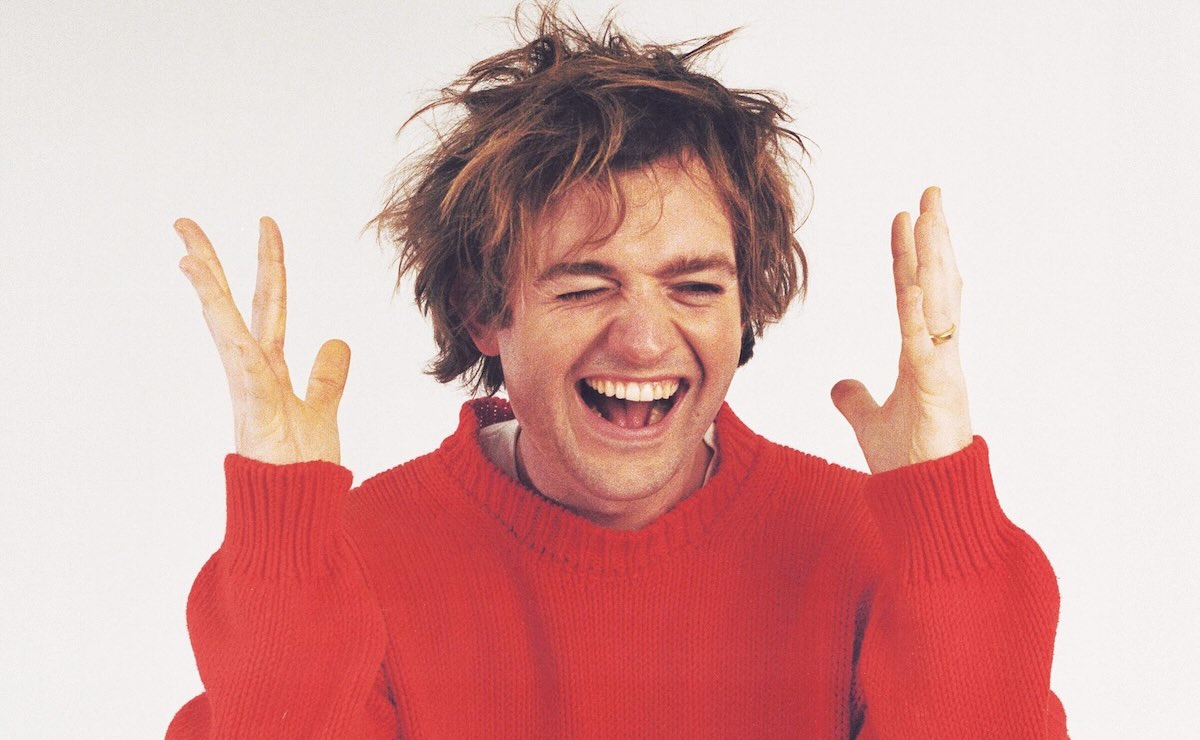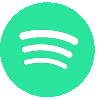
In this exclusive interview with Dayglow, he sits down with Variance's Ethan Ijumba to discuss his decision to release mixtapes instead of traditional albums, the evolution of his music and personal growth, his DIY approach to music, the challenges of self-sufficiency, the process of translating his songs into visuals, and his excitement for touring and connecting with fans, and be sure to stream his newest self-titled fourth album, DAYGLOW, on all digital streaming platforms.
Ethan Ijumba: To get right into it, early in your career, you've been releasing mixtapes such as Fuzzybrain in 2019, Harmony House in 2021, and People in Motion in 2022. Unlike most singers, that's not the traditional route many go through. They see EPs and projects. What exactly was why you decided to go the mixtape route leading up to your upcoming album?
Dayglow: Yeah, the mixtape thing is like a recent revelation in my emotional attachment to them. They're essentially just albums that I released in the creative process for this album, which was the same as the others. I write, produce, and mix everything myself. I found myself where, as an artist, I had yet to fully fully introduce myself as Dayglow. All the albums I had been making were experimental in their own way, and I hadn't been like, this is what Dayglow sounds like, or this is what Dayglow looks like fully encompassed. So that's what this record was setting out to achieve; all these past records were of me when I was 18, messing around. “Harmony House” was an album where I listened to Christopher Cross and James Taylor. I just made a Yacht Rock album for the most part, and “People in Motion” was more electronic and inspired by LCD Soundsystem. I was experimenting with each album, but with this one, it was like, what is Dayglow? And that was the ethos behind it.
EI: So speaking on that, your music itself is hard to define because it's got a blend of a lot of different genres in there, which makes it great also to do that. We've seen alternative and indie pop, but it's hard to categorize your music as a singular genre. It's very much more genreless on how you can listen to it. But how would you describe it in adjectives if you had to choose some specific words to define it?
Dayglow: My music is such a vague thing, but indie alternative is up there. But I would say beyond genre, my music is, for the most part, hopeful and fun. Usually, my lyrics are going over topics of self-awareness and growing up. I wouldn't say my lyrics are heavy, but they aren't always about life being amazing, and the music doesn’t always match the lyrics. It's music where it's happy while I'm going through something emotionally and in the lyrics. I have always thought that it is harder to get people to do nowadays, however much you're willing to read into it and listen.
EI: So, retrospectively looking back at it from your mixtapes, you were just listening to certain different genres. Do you feel that each represents a significant time or period in your life and that you've grown musically and just personally altogether as an artist?
Dayglow: Totally, each album absolutely represents the time in my life when I was making them, they were all just seasons of growing up and figuring out who I am, which makes this album so special because I just turned 25, so that made me approach this album with it being self-titled. Sonically and genre-wise, this album is the most like Fuzzybrain because I revisited that a lot and thought about what I did originally and what was the most intrinsic.
EI: So with your music being so organic, cause you're such a DIY guy and it drives everything you do is organically you, and everything's true to your roots. With that being said, how do you maintain creativity and find new ideas when composing your music? What drives you exactly to be self-sufficient?
Dayglow: Yeah, that's a good question. I recently realized I've had the same daily routine since I was 10 and I wake up and make something. Whether that's music lately, I've been doing woodworking and some electronic stuff. I watch a bunch of YouTube videos, which are usually about learning how to do something on YouTube. I'm always watching people build houses and stuff, that's kind of like my daily routine.
EI: Tutorial after tutorial.
Dayglow: Yeah and I don't struggle with writer's block. If I sit down, I'm pretty confident for the most part I can make a catchy song pretty much every day. But I think why would that song need to exist? There's so much music out there and there's so many things out there that are catchy at this point and AI can write catchy songs. There's a human element to things that really matter and I think that's what makes songs special and I think people can feel it when something was created by someone and so I try to be as intentional with what I'm doing as possible and know why I'm doing it. So that's the emotional side of things, and then with doing it alone, I grew up in a small town in Texas and I was the only person that cared about bands in general. No one even really would have been doing what you do by caring about music and like thinking that it matters at all?
EI: Was it like a top 40 town where all you heard was like the biggest hits and you were out listening to what everybody else wasn’t?
Dayglow: Maybe it was a top 40, but I don't even remember just music. I remember one of my best friends, he was like, I don't like music. He just didn't even like listening to it. But I think it was a lot of country music. But, I grew up doing it by myself and that made the most sense to me. I also thought that's how it worked for a lot of people, I thought when I was listening to music I was thinking the lead singer of this band had to have had a say with how the drums were mixed or like how all these things, and I didn't realize how not true that was. But that's just how I've approached things and it's just worked so far.
EI: Then what gravitated you to continue to pursue music as a career then? Because coming from a very unmusical small town, I would assume, if you're just in this area that not a lot of people have any interest in showing how much they love music, what exactly made you think that, because that's a hard battle to go against. You're pretty much going up a mountain, it sounds like by yourself where everyone's trying to be like, making music just doesn't really happen for us over here. So what exactly drove your passion and just pretty much kept supplementing your drive of what you wanted to do in a music career and become an artist then?
Dayglow: For whatever reason, I just love making music, and that's all I've ever done. All I've ever wanted to do was just make music. It's how I process my emotions, it's totally what I would be doing every day even if it weren't my career. Originally, my goals for how far it would go and how much I would do were very pretty conservative and humble. My first main goal was at a festival in Austin called ACL and the smallest stage was called the BMI stage. I was like, if I play that then I'm good to go. After Fuzzybrain had been released and I was still in college, I played it. And so genuinely from that point on, I've just been seeing what happens and rolling with it, I never really set out necessarily to have it be what it is now.
EI: When did it sink in then for you to be like, this is what I'm going to do no matter what? Because if it wasn't playing the BMI stage, what was that pivotal moment that made you go from there and say, this is what I'm doing? Whether anything else, if all else fails, I'm going to die trying.
Dayglow: Honestly, on this last album, I really felt comfortable saying I am Dayglow and I am an artist. It happened pretty recently, for a lot of people it's just so rare to have any type of spark of success. I was talking about how many talented artists there are and most people when they go home for Thanksgiving with their twice-removed family members, never really click for them. I feel like a lot of artists probably struggle with that in their hometown where it's like, you're still doing that? But I think for myself, I got over that on this album, and this is what I'm doing and I need to figure this out.
EI: Do you feel that even when you receive that and earn that overall milestones in your career for example the success of “Can I Call You Tonight,” did that still not settle in for what you're going to be doing? Was it still in your career where it's just a feat or would you feel like it was just an achievement rather than a turning or pivotal point.
Dayglow: I think I’m very hard on myself and I don't let good things sink in. With “Can I Call You Tonight,” my logic would have been like, it's not actually double platinum. It went on TikTok and then because of TikTok, it did these things, and I always thought there was something else to it. With everything, this isn't actually all there is. There's more to this and I don't deserve it, it's my logic. It's sunk in for me more recently that I have a lot of people out there who care about what I'm doing. It's a very hard switch for me to click in my brain.
EI: So in addition to that, speaking of doing your own thing and to play on words of the DIY process, cause it's literally doing your own thing in that case, do you have a most or a least favorite when it comes down to having to do everything yourself overall? Cause you could source help, but it seems that you're very much more on the self-sufficient side and if anyone's going to do the job, it's going to be me because then I can only have myself to blame and I can only have myself to pat myself on the back.
Dayglow: With the music side of things, I love every part of it. If I weren't Dayglow, I really do think I'd probably be just mixing songs for other people. I love the process of recording music way more than being an influencer on Instagram.
EI: So basically the promotion and the marketing.
Dayglow: Yeah, and I like making fun of marketing while marketing, but that's the side that always feels exhausting. The music stuff never exhausts me. I could sit at this computer for hours mixing drums and I would be so fulfilled. But if I have to record a TikTok for like five minutes, it just exhausts me. With all the Instagram and TikTok stuff, it's like, my face has to be a part of it.
EI: Additionally, when it comes down to your music and how you also direct your music videos, such as “Every Little Thing I Say I Do,” and you also did “Cocoon.” How do you approach translating your songs into visuals exactly? Does it come from cinematic influences or is it just the lyrics itself where you see where you want to take it? How do you go about finding where you want to take the direction for your visuals for your songs?
Dayglow: Some of my favorite music videos are by OK GO with their crazy videos and stuff. I wouldn't say those compare to mine necessarily, but I think they're all really fun in a way that like their one idea just completely blown out of proportion.
EI: Their videos can't be compared to each other. I say they're like episodes of SpongeBob. You can say a couple of sentences or phrases about them and you already know which one you're talking about through it.
Dayglow: With my videos, I try to do like the most low budget DIY version of one idea that makes this video what this video is, and then go with it. It doesn't require any big budget, I try not to do that because it goes back to the personal thought of how I don't deserve a big budget.
EI: So then on top of that, preparing for the release of your debut album, how does it feel now preparing for it compared to preparing for your mixtapes? Because you said earlier when it comes down to how you've prepared from what's in the studio, to what you're doing from your vocals, your production, do you treat this one a little differently now compared to the mixtapes of before?
Dayglow: For the past two albums, I've definitely made them in a year. With this album, I took two years to make it, to really make sure, like, this is what I wanted to be doing. I definitely am an album artist, it's always been really hard to pick what the single is and a lot of times it's so hard to just do that. In general, fans will pick the song that means the most to them. So it's been weird trying to promote it because for the past three albums that I've done, it wasn't as important to leak the song before the song is out. But once the album is out and once the tour is going, I think it'll click for people and probably click for me that it's out there. I think the approach was just trying not to think about it as hard or that this is this concept album. I was just being me playing guitar and keeping it as raw as possible. It's hard to see yourself fully, but I'm confident that it shows through the music and through the album, simply just because I made it. I tried to rely on that blindly as much as possible.
EI: So you want this to be something that's very just rooted in you, creating back to the craft true artistic elements that you can give to those to listen to. It still has depth and layers behind it, but this isn't something that you want to be too, too in-depth and also too simplistic it seems like.
Dayglow: Yeah, I wanted this album to be as me as possible, the best way to probably do that is not think about it too much. And so it's interesting where I landed because it ended up being a lot of like, you know, like just electric guitar and vocals. It's pretty stripped back, especially compared to the last album. But I'm stoked, I love this album and I'm really excited for people to hear it in its entirety.
EI: And then speaking of people being excited to hear your music, you also have your headline tour, which is going to be broadly titled, Dayglow, The Tour which started in Mexico City, and then you've got your three final shows in your hometown of Austin, Texas. How does it feel that you get this opportunity to play this new music for these fans of yours across the U.S. and just getting to experience it through?
Dayglow: I know for a lot of artists, touring isn't their favorite thing, but for me without a doubt it is. I think my music makes the most sense being live, but like I think, it's just what I love. I love meeting people and meeting them where they are. For the most part, some people travel for shows, and meeting them as Dayglow in their hometown is always so exciting. I love touring, and I think this show is definitely going to be the best Dayglow show yet. I think I'm the healthiest and most mentally prepared for it. I'm over that slump of being the shy guy who doesn't deserve this at all, and just fully embracing and having fun with it. I also have just such great fans, people definitely come to my shows who are looking to have a fun time.
EI: Amazing, I love that for you and with all of your thing that your music's been coming out, I think it has a lot of different feelings that people get to experience and feel that I can only imagine that in a live setting, they're probably gonna have like a heightened level of that where it's euphoric.












